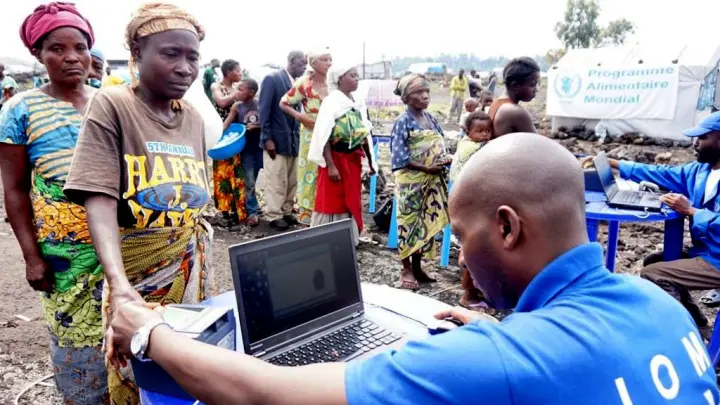In a move to enhance food security and promote dignity among internally displaced persons (IDPs), the Federal Government of Nigeria has partnered with the World Food Programme (WFP) to assist 750,000 displaced individuals through a cutting-edge digital biometrics e-wallet and food voucher system.
The initiative, launched through the Ministry of Humanitarian Affairs, is designed to ensure transparency, accountability, and efficiency in humanitarian aid distribution. The digital vouchers are redeemable at local retail outlets using point-of-sale (POS) systems, allowing beneficiaries to purchase locally produced food items while simultaneously stimulating local economies.
Minister of Humanitarian Affairs, Nentawe G. Yilwatada, made the announcement during his recent visit to Nigeria’s largest IDP settlement located in Ngala Local Government Area of Borno State, near the borders of Cameroon and Chad. He emphasized that although peace has gradually returned to some areas, the lingering effects of prolonged insecurity and devastating floods have severely crippled infrastructure, agriculture, and livelihoods across the region.
Read also:
- German envoy, UNDP Rep unveil housing units for IDPs, ICT centre in Borno
- Exclusive: Displaced Okuama residents deploy planned closure of IDPs camp
- IDPs Resettlement: Zulum seeks UN support
Highlighting the scale of the challenge, the Minister revealed that vast expanses of fertile farmland, once used for wheat cultivation, now lie abandoned due to security concerns. Hundreds of square kilometers of productive land remain untapped even as food demand continues to rise among displaced communities. He pointed out that this dormant land holds enormous potential for rebuilding livelihoods through secure and smart agriculture initiatives.
The adoption of biometric technology in the aid process marks a turning point in Nigeria’s humanitarian efforts. By linking aid to unique biometric profiles, the government aims to eliminate fraud, reduce duplication, and deliver assistance directly to those who need it most. Beneficiaries gain not only access to food but also the autonomy to choose what they eat, preserving their dignity and agency.
Minister Yilwatada described the program as more than just a food aid strategy. According to him, it represents a broader vision to “restore hope, enhance food security, and lay the groundwork for sustainable return, recovery, and prosperity” in communities devastated by conflict and climate-related challenges.
This innovative approach aligns with global best practices in humanitarian response and underscores Nigeria’s commitment to transparency, resilience, and inclusive recovery. As the program scales, it is expected to transform not only how aid is distributed but also how communities rebuild their futures, one biometric voucher at a time.






